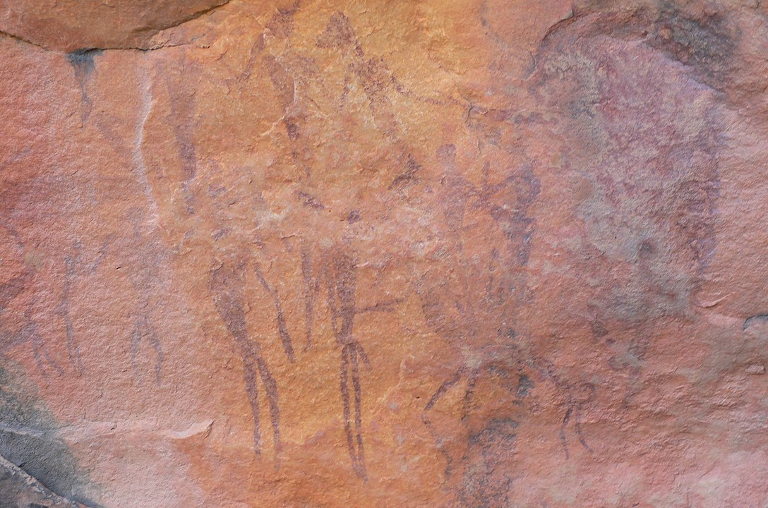Language is surely one of the greatest political weapons ever invented because it invisibly defines the world in narrow ways and can impair our capacity to see and think clearly. This is one of the takeaways I had after looking through Sian Sullivan’s new website, “The Natural Capital Myth and Other Stories,” which collects twelve years of her writing (2008 to present) on this theme.
Sian has long brought laser-beam clarity to the ways in which capitalism redefines the more-than-human world in financial terms. The investor class has not just introduced a handful of words; they have invented an entire worldview that erases nature and turns it into an essential element of capitalist production and profit. The natural world is re-interpreted through the scrim of money. That may not be pernicious in and of itself, but now that this perspective informs how the market/state order relates to the natural world, well….that’s a serious problem.
By “financialization,” Sullivan means the “revisioning and rewriting of the natural world in terms of financial terms and concepts.” She also means that banks and financiers regard “environmental conservation activities as new possibilities for speculative investments and products” – a new zone for profiteering and capital accumulation.
This is deeply concerning because, as conservation itself becomes a way to make money, the line between “nature” and “capital” is starting to blur. The Orwellian term “natural capital” has become a way to justify a relentless extractivism, in the name of preserving nature!
In a 2008 essay on “Bioculturalism, shamanism and unlearning the creed of growth,” Sullivan suggests that modern economics suffers from a perpetual hunger that can never be sated. This affliction resembles one that the Greek god Demeter gave to a greedy king who refused to respect a scared grove of trees. Sullivan writes:
Permanent dissatisfaction and unfulfilled desire similarly are a zeitgeist of the freedom to produce and consume that is the hallmark of the creed of growth of state-corporate capitalism. And with indicators everywhere of decline and collapse in both global economy and ecology – from housing and finance markets, to disruptions in the dance of the seasons, the wake-up call of imminent ‘peak oil’ productivity, monstrous inequalities in the distribution of material wealth and resources, and reductions of cultural and biological diversity – perhaps we now are experiencing the inevitable inability of contemporary structures to sustain that hunger.
It’s not just that we, or the king, try to consume too much. It is that we have conceptually divorced ourselves from nature. The problem is that we see nature as “some thing to be measured, mapped, modeled, commodified, conserved, used. It is not felt, celebrated, danced, or given gifts.” We moderns don’t have a “bioculturalism” that links biological diversity with a diversity of cultural knowledge, languages, and practices.
Sullivan has many other essays that speak to the ways in which our language, technologies, and desires have separated us from the more-than-human world, while paradoxically promising to emancipate and enrich us.
Check out her piece on the ontological assumptions of environmental knowledge and policy, for example, or an account of new accounting protocols that attempt to measure and monetize “natural capital” and associated flows of “ecosystem services.” Another interesting essay looks at the misguided potential of blockchain technologies to host a cryptocurrency exchange for “natural capital assets.”
While the financialization of nature may seem like a niche topic, it is really part of a larger cultural phenomenon. A few weeks ago, senior White House advisor Kevin Hassett told CNN that America’s “human capital stock” is ready to get back to work as the pandemic (supposedly) recedes. Er, yeah…but most of us regard ourselves as human beings, not machines for driving ROI.
Other Administration officials have famously opined that old people should be willing to risk death by Covid-19 for the sake of reopening the US economy. As President Trump himself tweeted, “WE CANNOT LET THE CURE [shelter-at-home restrictions] BE WORSE THAN THE PROBLEM ITSELF.”
Of course, this money-obsessed sensibility is not confined to our ethically challenged president. For several decades, with the ardent backing of corporate America, the US Government has used a calculation known as Value of a Statistical Life, or VSL, to assign a value to a person’s life. The current value is $10 million. Under cost-benefit analysis protocols, a new regulation is considered too expensive if it requires an industry to spend more than $10 million per estimated life saved.
How did we get to this amoral immersion into the financial worldview? How did we forget the primary sensuous experience of life itself and appreciation for its intrinsic, priceless value?
Read poets like Wendell Berry to rediscover the embodied joys of living. But for a more clinical, archeological dissection of what’s gone wrong with modernity and economics, check out Sian Sullivan’s outstanding oeuvre. Her writings are a refreshing forensic account of how we have financialized our understanding of nature, warping our souls in the process — and how we need to rehumanize ourselves with a new vocabulary of value.
Teaser photo credit: By Jimfbleak at the English Wikipedia, CC BY-SA 3.0






